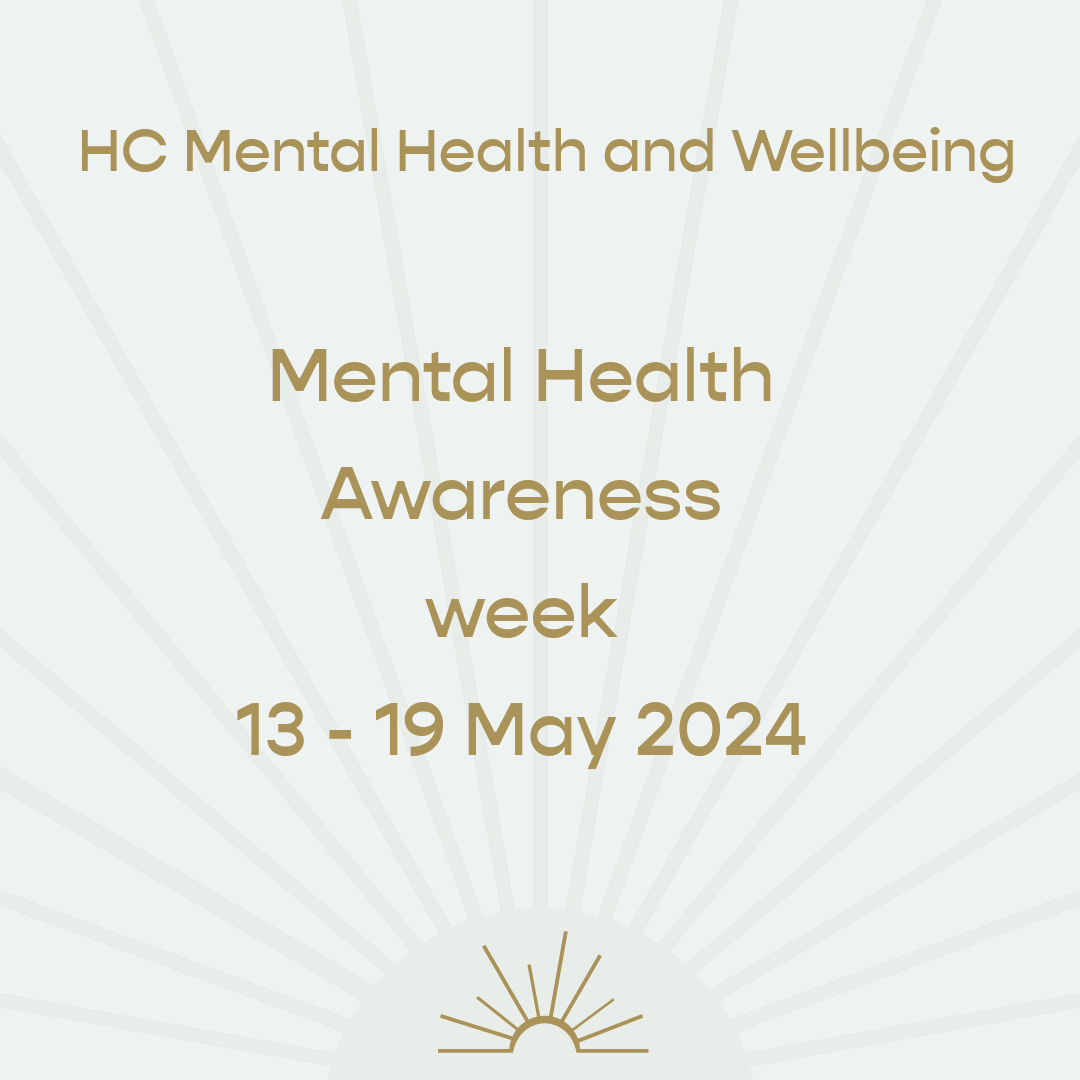
Mental Health Awareness week 13-19 May
The theme this year for Mental Health Awareness week is Movement.
Personally, I believe every day should be focused on mental health and being aware of how we think, act and feel and develop an understanding of why we feel the way we do.
The World Health Organization’s definition of mental health is:
“Mental health is a state of mental wellbeing that enables people to cope with the stresses of life, realise their abilities, learn well and work well, and contribute to their community.”
This is an integral component of health and wellbeing that underpins our individual and collective abilities to make decisions, build relationships and shape the world we live in.
Our mental health is not static and our mental health and overall wellbeing changes as we navigate day to day life, when we encounter challenging times in life, such as grief, relationships or stress within the environment we live or stress experienced within the workplace, therefore looking after our mental health should be a top priority to help us be in the best position to recognise the signs of depletion on our resilience, our emotional wellbeing and our mental health reserves.
Research carried out by Mental Health UK shows that 56% of people found that exercising regularly helped them to alleviate stress and also reduce the risks of burnout in their lives.
When we exercise the body releases endorphins, these are created in the pituitary gland and the hypothalamus in the brain. Endorphins are a type of neurotransmitter, or messenger in the body and they attach to the brain’s opioid receptors (or brain’s reward centre) and carry signals across the nervous system.
The word endorphin derives from endogenous, meaning within the body and morphine, an opiate pain reliever, put these together creates the word endorphin, our natural pain relievers also known as feel good chemicals, making us feel better and brings us to a positive state of mind.
Some forms of exercise can include a brisk walk, cycling, dancing, swimming and hiking.
Exercise can be a preventative and an early intervention to reduce the risk of developing a mental health illness, however exercise alone can not be the complete cure.
Committing to a fund raising event, such as a run, long walk or bike ride can help the individuals taking part as well as vital funds for selected charities. Training for a fund raiser with others can help you get moving more often and become stronger as you progress with your training. Training with likeminded people can give you accountability together as well as the opportunity to connect and make friendships, as well as the benefit of the good feeling of helping others and adding to your overall wellbeing.
However, there are constraints for some when talking about movement, for some moving can be physically challenging, maybe accessibility to open space, lack of space in the environment and the lack of finances. So, try exercising the mind instead, read more, try being mindfully aware of how and why you feel the way you do. Other ways to release endorphins is to create art, meditate, volunteer giving your help or time and laughing with others and having fun together.
Learning more about mental health conditions helps break down the stigma and fear around mental health, talk about what you learn to raise awareness, this helps you and others to feel safe to talk about mental health.
Mental health and well-being days are not a cure all, as being consistently overwhelmed has a depleting effect on human energy, leading to burnout and stress. A report showed nearly 2/3 of employees don’t feel comfortable talking about their mental health to colleagues never mind talking to their manager so employees found this was a barrier to getting the benefits of wellbeing days.
However, when a care culture is promoted within the workplace environment this effect can help employees feel more comfortable taking off wellbeing days when necessary and gain the benefits from these prepared days.
Managers have a great impact on employees mental health according to a global study 60% of employees named their job as the biggest factor influencing their mental health. Therefore managers have a responsibility to influence support and stability within their teams. Statistics from the workforce institute UKG (Ultimate Kronos Group).
Providing training for managers in mental health and awareness to gain the necessary skills to show empathy and be authentic and actively listen and incorporate these skills to promote a care culture to reduce stigma and fear around mental health and promoting a safe workplace environment for all to feel comfortable to discuss emotional wellbeing and have open conversations. These conversations can reduce presenteeism and empower employees to improve productivity and build strong cohesive teams.
Learning about mental health conditions can remove stigma, and can remove the fear to disclose we are living with a mental illness, remove the fear of being judged that we will be less productive, remove the fear of not being selected for a promotion, remove the fear of discrimination and exclusion, some of these fears can add or exacerbate a mental health problem.
Building a healthy workplace is the cornerstone to securing the foundations of a care culture and safe environment for all employees, a place where all employees have a voice and are able to ask for and receive support when required.

